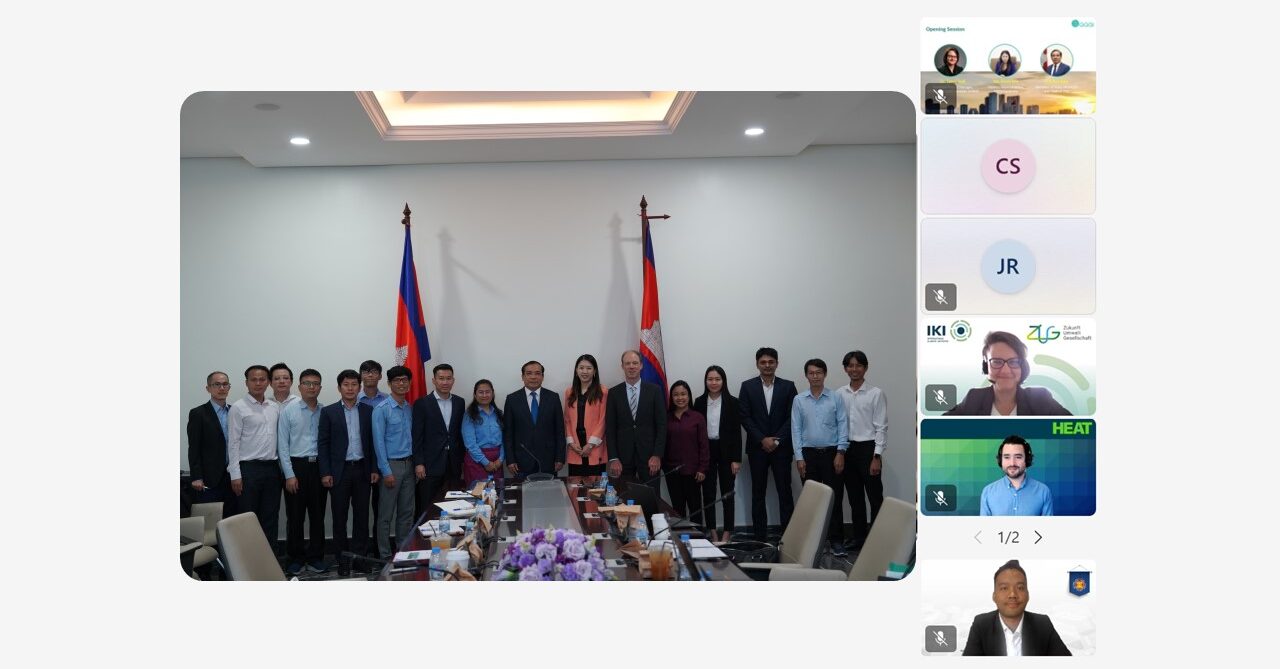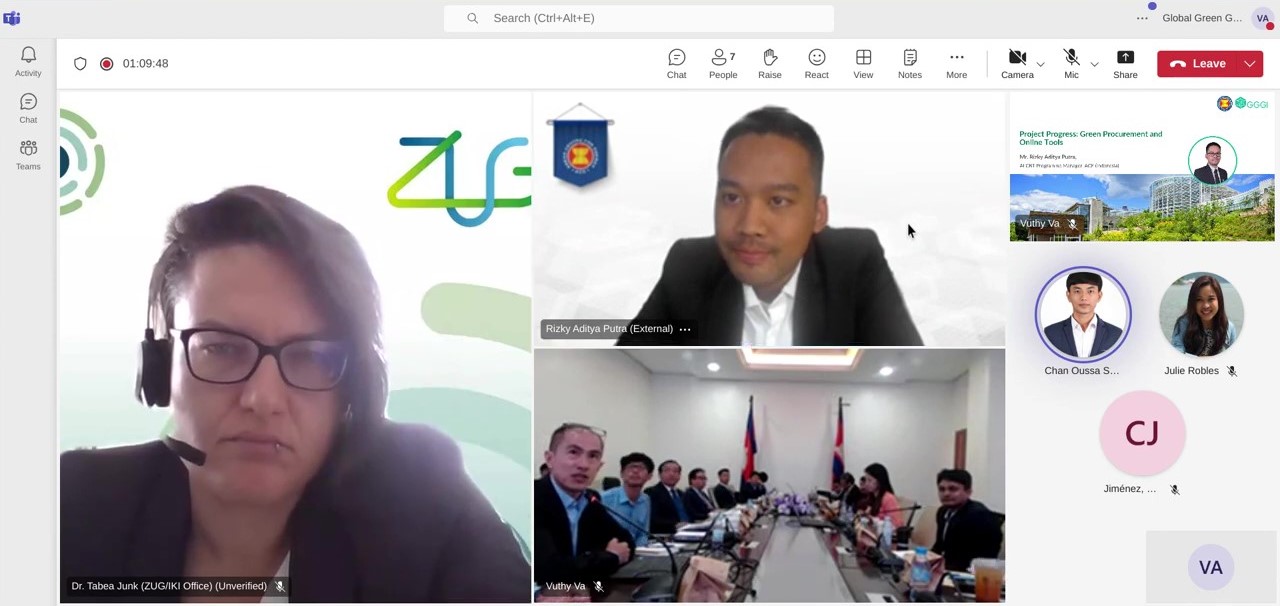Menu

Photo 1. Group Photo of the Participants
On 2 September 2024, the Ministry of Land Management, Urban Planning and Construction of Cambodia (MLMUPC) hosted the 1st Project Steering Committee (PSC) meeting for the Asia Low Carbon Buildings Transition (ALCBT) project, in Phnom Penh, Cambodia. The meeting aims to update and review the project implementation progress and plans in Cambodia. The meeting was attended by the Project Steering Committee Members, which provides the policy and strategic guidance for project implementations. The ASEAN Centre for Energy (ACE), as part of consortium partners, joined virtually.
During his opening remarks, His Excellency Ros Salin, Secretary of State for MLMUPC and PSC Chair, emphasised the project’s alignment with Cambodia’s sustainable development priorities, particularly in the low-carbon building and construction sector. He highlighted the need for collaboration with other ministries to address energy and environmental issues in construction and building operations. His Excellency also underscored the significance of cost-effectiveness for buildings through energy saving and encouraged the project team to expedite implementation through close collaboration with partners.
Dr. Tabea Junk, Technical Project Manager at the IKI Office noted the contribution of the International Climate Initiative in funding climate change projects in developing countries. She highlighted the significant role of the PSC in guiding project implementation to meet the needs of each country and noted the building sector’s significant contribution to global emissions, accounting for 37% in 2022.
Shomi Kim, Country Representative of GGGI Cambodia, stressed the project’s crucial role in transforming Cambodia’s green building sector. She underlined that the project’s success relies on the active participation of PSC members and sought their inputs and recommendations to enhance the project’s impact on Cambodia’s building sector.
GGGI, as the consortium lead, updated the progress in the development of a building registry, policy assessment for net-zero building, and low-carbon building training programme. Meanwhile, HEAT, as one of the consortium partners, provided updates on standardised tools for life-cycle assessment (LCA) and Measurement, Reporting and Verification (MRV). Additionally, HEAT is also supporting the integration of building carbon performance metrics into national plans and strategies, including NDCs and long-term low emission development strategies.

Photo 2. Presentation by Rizky Aditya Putra, Programme Manager of ALCBT at ACE
Rizky Aditya Putra, Programme Manager of ALCBT at ACE, shared the updates on two of its major deliverables by ACE, namely the web-based one-stop-shop Regional Building Energy Efficiency Database and Investment Platform, which aims to facilitate knowledge sharing, best practice exchange, and investment opportunities for energy efficiency in buildings across the ASEAN region; and the Green Public Procurement Guidelines for Energy Efficient Cooling, which seeks to integrate best available technologies (BAT) for key efficient cooling appliances with natural refrigerants into green procurement practices for the building sector, thereby increasing the uptake of most efficient air conditioning systems in the ASEAN region. The PSC members acknowledged the progress and looked forward to the completion of these two tools by Q3 2025.
The Project Steering Committee considered and approved the progress of the 1st year implementation and the workplan for 2025. Directions from the PSC meeting include plans to expedite the establishment of project governance structures and the development of a comprehensive building registry in Phnom Penh. The Meeting also emphasised the need for aligning the project outputs with national initiatives, particularly in developing a green building certification scheme for Cambodia. The Meeting underscored the project’s ambitious goal of mobilizing EUR 20 million for low-carbon building initiatives and the potential of ESCO business models for its implementation.
Moving forward, ACE is committed to working closely with all consortium members and local stakeholders to ensure effective project implementation, promote knowledge sharing, and align activities with national priorities.
The ALCBT project is a five-year initiative supported by the Federal Ministry for Economic Affairs and Climate Action of Germany under its International Climate Initiative (IKI) to promote low-carbon buildings in Cambodia, India, Indonesia, Thailand, and Vietnam. ALCBT Project is being implemented by a consortium led by the Global Green Growth Institute (GGGI) with HEAT International, ASEAN Centre for Energy (ACE), and Energy Efficiency Services Limited (EESL) as consortium partners. The project aims to develop tools for managing building carbon emissions, enhance stakeholder capacity, establish financing pathways, and promote knowledge sharing.
In Cambodia, the project partners with Ministry of Land Management, Urban Planning and Construction (MLMUPC). ALCBT will institutionalise the building carbon assessment tool, enhance the capacity of public and private sector entities, and link the building carbon assessment to the building energy codes of the country. The project will contribute to meeting the emission reduction targets set in the National Energy Efficiency Policy (NEEP), the Updated Nationally Determined Contributions, the National Cooling Action Plan, and the NDC Roadmap for Buildings and Construction 2020-2050.
